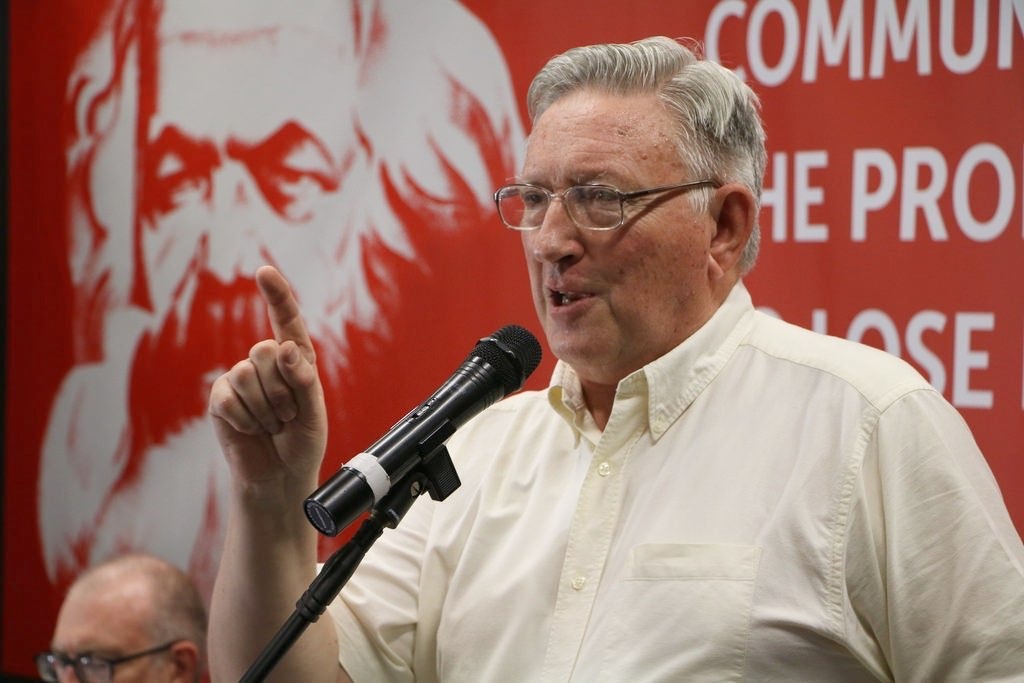By Evens Sanon And Dánica Coto
Posted April 12, 2024

Haiti crisis: Surge in gang violence, food insecurity envelopes nation – Mar 29, 2024
A transitional council tasked with choosing Haiti’s next prime minister and Cabinet was established Friday in a move supporters hope will help quell turmoil in the troubled Caribbean country where most of the capital remains under the grip of criminal gangs.

The formation of the council, announced in a decree published Friday in a Haitian government gazette, was expected to soon trigger the resignation of Prime Minister Ariel Henry, but a new provision said he would step down when a new premier is chosen. Henry did not immediately comment.
Those awarded a seat on the council are Petit Desalin, a party led by former senator and presidential candidate Jean-Charles Moïse; EDE/RED, a party led by former Prime Minister Claude Joseph; the Montana Accord, a group of civil society leaders, political parties and others; Fanmi Lavalas, the party of former President Jean-Bertrand Aristide; the Jan. 30 Collective, which represents parties including that of former President Michel Martelly; and the private sector.
The two non-voting seats are represented by someone from Haiti’s civil society and its religious sector.
“The establishment of the…politically inclusive council signals the possibility of a new beginning for Haiti,” a Caribbean trade bloc known as Caricom, who helped form the council, said in a statement.
It said that the council “will take the troubled country through elections to the restoration of the lapsed state institutions and constitutional government.”
“It is also clear that one of the first priorities of the newly installed Presidential Council will be to urgently address the security situation so that Haitians can go about their daily lives in a normal manner; safely access food, water and medical services; children can return to school; women can move around without fear of horrific abuses; and so that businesses can reopen,” Caricom said.
The published decree acknowledged what it called “a multidimensional crisis” that has worsened since the July 2021 assassination of President Jovenel Moïse. It said the crisis has led to a “catastrophic humanitarian situation” and that Haiti is experiencing “unprecedented institutional dysfunction, which has led to a political impasse.”
Edmonton's breaking news sent to your email as it happens.
It also noted that Henry would present his resignation once a new prime minister is appointed.
The decree, which was signed by Henry and his Cabinet, noted that no one can be a member of the council if they have been sanctioned by the U.N., oppose the deployment of a foreign armed force or plan to run in the next general election, among other conditions.
While an election date hasn’t been set, the decree stated that the president-elect must be sworn-in on Feb. 7, 2026 at the latest, and that the council will exercise presidential powers until then.

2:06 Haiti crisis: Canada begins airlift evacuations
The council also will be responsible for helping set the agenda of a new Cabinet and will appoint members to form a provisional electoral council, which is needed before elections are held. It also will establish a national security council whose responsibilities have not been decided.
The decree does not set any deadlines for choosing a new prime minister or Cabinet, stating only that the council must “quickly” do so.
The council will be based at the National Palace, and its mandate is supposed to end when a new president is sworn-in, with no possibility of extension.
The United Nations Integrated Office in Haiti posted on X that it would continue to closely follow the political process as it called for international support for Haiti’s National Police, saying it is “essential to restore security and the rule of law.”
“We reaffirm our commitment to supporting the country’s institutions in their efforts to restore democratic institutions,” María Isabel Salvador, the U.N. special envoy for Haiti, said in a statement.

1:00 Canadian military’s elite counter-terrorism unit deployed to Haiti
The council’s creation comes exactly a month and one day after Caribbean leaders announced plans to help form the nine-member panel, with seven members awarded voting powers.
Friday’s development was cheered by those who believe the council could help steer Haiti in a new direction and help quell widespread gang violence that has paralyzed swaths of the capital of Port-au-Prince for more than a month.
More than 1,550 people have been killed across Haiti and more than 820 injured from January to March 22, according to the U.N.
While gangs have long operated throughout Haiti, gunmen organized large-scale attacks starting Feb. 29. They burned police stations, opened fire on the main international airport that remains closed and raided the country’s two biggest prisons, freeing more than 4,000 inmates.
The attacks were meant to prevent the return of Henry to Haiti. At the time, he was in Kenya pushing for the U.N.-backed deployment of a police force from the East African country. He remains locked out of Haiti.
While the violence has somewhat subsided, gangs are still launching attacks throughout Port-au-Prince, especially in the downtown area, where they have seized control of Haiti’s biggest public hospital.








